All new parents look forward to the day they can start their baby on solid foods. Starting solid food means many things for parents, some of which include more freedom and more sleep at night. I personally am breastfeeding my baby and look forward to when I don’t have to be constantly tied to her. But with the transition to solids, there also come many questions, like when can my baby eat solids? Or, when can my baby drink water? I hope to address these and as many of your questions as possible in this article.
In this article
- Complementary Feeding
- Medical Background on Complementary Feeding
- What the Research Says on Starting Too Early
- What the Research Says on Starting Unhealthy Solids
- Some Recommendations and Tips
- Signs of Readiness
- When Can Babies Eat Certain Solid Foods?
- When Can Babies Eat Rice Cereal
- When Can Babies Eat Meat Puree
- When Can Babies Eat Fruit and Vegetable Purees
- When Can Babies Eat Gerber Puffs
- When Can Babies Eat Plain Yogurt
- When Can Babies Eat Cheese
- When Can Babies Eat Meat
- When Can Babies Eat Pasta
- When Can Babies Eat Vegetables
- When Can Babies Eat Soft Fruits
- When Can Babies Eat Oranges
- When Can Babies Eat Baby Crackers
- When Can Babies Eat Dry Cereal
- When Can Babies Eat Peanuts or Peanut Butter
- When Can Babies Eat Eggs
- When Can Babies Eat Fish
- When Can Babies Eat Raisins
- When Can Babies Eat Pineapple
- When Can Babies Eat Tomatoes
- When Can Babies Eat Chocolate
- When Can Babies Eat Ice Cream
- List of Liquids
- What to avoid before 6 months
- What to avoid before age 1
- Some Things You Can Expect After Introducing Solids
- Conclusion
Complementary Feeding
To start, let’s talk about complementary feeding. What is complementary feeding? According to the World Health Organization, or WHO, it is “the transition from exclusive breastfeeding to family foods” and “typically covers the period from 6 to 18-24 months of age.” This is the time in a baby’s life in which it is okay and even necessary to start feeding them solid foods.
Medical Background on Complementary Feeding
View in gallery
Why is complementary feeding important? In order to answer this question, I need to give you some medical background on the topic. To do so, I consulted a Medical Textbook put out by WHO. Here are some interesting facts I found:
- When infants are 6 months old, they can’t meet their nutritional needs with human milk alone, thus requiring the introduction of solid foods.
- At 6 months, infants are developmentally ready to start eating solid foods.
- At 6 months, most infants have doubled in their birth weight and are more active, thus requiring more than just breastmilk or formula to give them enough energy.
- By 6 months, infants’ digestive systems have matured and are ready for solid foods.
- By 6 months, infants can hold food in their mouths without pushing it out with their tongue.
- After 6 months, infants’ needs can be met with half or more of breastmilk.
- Breastmilk contains more nutrients than complementary foods.
- There is an energy gap that grows as the infant grows, which means that they will require more and more solid food as they get older.
- The amount of solid food to feed an infant depends on the energy density of the food.
- You know how much solid food to offer an infant by observing their appetite.
- The biggest nutrient gap for infants is iron.
- Vegetarian foods aren’t enough, infants need meat foods and fortified foods.
- Sugar provides energy but has no nutrients and can do damage.
- There is no evidence showing that restricting allergens leads to less allergies.
What the Research Says on Starting Too Early
It can be tempting to start feeding your little one solids before 4 months, but you should be aware of what the research says regarding this before you do. According to BMC Public Health, “introducing complementary feeding earlier may contribute to more rapid weight gain during infancy and increased risk of childhood obesity in affluent populations.” So maybe think twice before ignoring your doctor’s advice.
What the Research Says on Starting Unhealthy Solids
There is also quite a strong temptation to start giving your baby unhealthy solids–they are usually cheaper and more convenient, and often reflect what a lot of adults are eating in their own diets. But again, be aware of what the research says on this. According to BMC Public Health “A high intake of foods such as sweet desserts and sweet beverages during infancy is associated with a high intake of these food types in later life, and with childhood overweight and obesity. Furthermore, excessive intake of sugar-sweetened beverages during infancy may result in diarrhea, failure to thrive, tooth decay, and a decline in the consumption of other nutritious foods.” So it is best to avoid too much sugary food, especially in a baby’s first year of life.
Some Recommendations and Tips
At what age can infants eat solid food?
Infants begin complementary feeding any time from 4-6 months. The AAP recommends waiting till at least 4 months because “introduction to solids prior to 4 months is associated with increased weight gain and adiposity, both in infancy and early childhood.” So however tempting it is to begin feeding your baby solid foods before 4 months, try to avoid it if possible. And, make sure to check with your pediatrician, as this also likely depends on each infant’s particular needs.
How should I introduce solids?
So how do you actually go about this whole transition to solid foods? La Leche League offers some tips on how to do so:
- A good time to introduce solids is after a “meal,” which means after a session of breast or bottle feeding.
- Another great time is when the infant is curious, perhaps during mealtime and they are observing their family eating.
- To avoid messes, put something under the high chair, like a towel or a shower curtain.
- Start with small amounts at first.
- If the infant doesn’t like it, offer it another time.
- Follow your baby’s pace, let them lead. Don’t force anything.
- Don’t leave them alone, they can choke without assistance.
- Offer single ingredients, then wait a week in between each new food.
- Watch for signs of an allergic reaction.
- Be ready for some gas and unusual stools.
View in gallery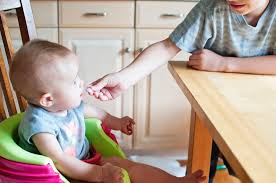
Some other experts have some helpful tips as well. According to Stanford Children’s Health, you should “start with small amounts of new solid foods. Try a teaspoon at first and slowly increase to a tablespoon.” Babies are still getting used to swallowing food, so it is best to start small and work your way up.
And according to the AAP, “research indicates that it is important to expose children to a wide variety of flavors and textures.” The more babies are exposed to, the more they are likely to try. This can come in handy later on when you have a picky toddler on your hands!
How can I safely prepare solids?
This is a major question of many parents. We all want to keep our little ones safe. Here are some tips from the CDC on how to prepare foods so that they are safe for infants:
- Cook hard fruits or vegetables so they’re soft
- Mix cereals with breast milk
- Cut cylindrical foods into thin pieces and not round pieces
- Cut round food into small pieces
- Remove fat, skin, and bones, from meat before cooking
If you follow these safety tips when preparing food for your infant, you can relax and know that they will not choke on their food.
How many solids should I feed my baby and when?
This is something that many parents wonder about, and likely get wrong. It is tempting to rush the process of complementary feeding to fit with our expectations and desires, but it is mainly about the infant and their schedule. It can take some time. According to Amy Gorin, MS, RDN of Parents, “up until 7-10 months, babies will drink most of their calories. Because of this, mealtime is less about getting full and more about getting used to the idea of eating.
View in gallery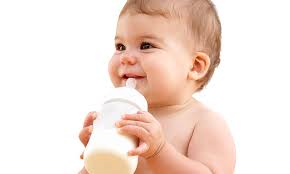
As far as a feeding schedule goes, she recommends giving “baby the breast or bottle first thing in the morning, before or after meals, and before bedtime.” She continues, saying “at the beginning, you’ll have to experiment to find what works best. If she’s a big drinker—say, if she’d drink a whole bottle before a meal, given the chance—feed her first with food and then with a bottle. If she’s a moderate drinker, try the opposite.”
Here are her specific recommendations for how much breast milk or formula to feed your baby and when:
- Feed babies that are less than 9 months old 20-28 oz of formula or breast milk every 3-4 hours.
- Feed babies that are between 9 and 12 months 16-24 oz of breast milk or formula every 4-5 hours.
Here are her specific recommendations for how many solids to feed your baby and when:
- Feed babies that are between 4 and 6 months old two meals, each with 2-4 tablespoons.
- Feed babies that are between 7 and 12 months 3 meals, each being the same size as the baby’s fist.
Signs of Readiness
So how do you know when your infant is ready to start solids? The basic guideline is 4-6 months, but there are also some signs you can look for. According to Healthy Children, your baby may be ready to start solids if he:
- Hold his head up
- Open his mouth when a spoon comes his way
- Move food to his throat when eating from a spoon
- Is big enough (doubled birth weight)
Here is a helpful video from the Kaiser Institute on how to tell if your baby is ready to start solids.
When Can Babies Eat Certain Solid Foods?
Is there such thing as an ordered list of solids to start your baby on? According to Stanford Children’s Health, “there are no strict rules about what order you should give different foods in. Many people start with infant cereal and slowly add fruits, vegetables, and proteins.” Despite there not being any strict, set rules about what to feed babies first, I’ve compiled some of the basic guidelines from experts in the field. Most of these guidelines come from the Mayo Clinic, but for some of the more specific foods that parents often wonder about I used other experts’ recommendations. So here is my compiled ordered list of foods to start your little one on.
When Can Babies Eat Rice Cereal
Rice cereal is a great first option to start your baby on because it is often fortified with iron and zinc, which according to the Mayo Clinic, “are important nutrients for the second half of your baby’s first year.” They recommend mixing a small amount of rice cereal with breast milk, and rather than serving it in a bottle, serving it to your baby with a spoon. They also suggest starting very small, with maybe a teaspoon or two at a time a couple of times a day after breast feeding or bottle feeding.
When Can Babies Eat Meat Puree
After starting rice cereal, a good option is a single ingredient meat puree. It should not include any salt or sugar. This is a good option because it also provides babies with the essential nutrients they need in the second half of their first year.
When Can Babies Eat Fruit and Vegetable Purees
Next the Mayo Clinic recommends starting your baby on single ingredient fruit and vegetable purees. The purees should not have any salt or sugar in them, and you should wait a week between each new puree.
When Can Babies Eat Gerber Puffs
After these initial pureed foods, it is okay to start on puffs, since they easily dissolve in an infants’ mouth. And since they are a finger food, they are great for helping your infant learn to regulate their own appetite and eat when they feel hungry.
When Can Babies Eat Plain Yogurt
Many parents worry that yogurt will be bad for their infant, but a little bit is okay around 8 months, according to What to Expect. And because sugary foods aren’t great before an infant is 1 year old, plain yogurt is probably best. Additionally, whole milk yogurt is a great option because infants need healthy fats to boost their brains and help them grow.
When Can Babies Eat Cheese
The Mayo Clinic recommends starting your infant on cheese at around 8 months, as long as it is finely chopped and in small portions.
View in gallery
When Can Babies Eat Meat
Infants can also begin to eat well-cooked meat at 8 months, when it is finely chopped and in small portions.
When Can Babies Eat Pasta
The May Clinic also recommends that infants start pasta around this time, as long as it is cut up in small pieces.
When Can Babies Eat Vegetables
Another food that infants can begin eating at 8 months are vegetables. Again, they should be cut up quite small and offered in small portions.
When Can Babies Eat Soft Fruits
The Mayo Clinic says that babies can also eat soft fruits at 8 months, as long as they are cut up small.
When Can Babies Eat Oranges
If you’ve ever wondered when your baby can start eating oranges, you’re not alone. This is a fruit that many parents worry about because of their acidity. However, according to Baby Center, infants can eat oranges in small portions around 8 months.
When Can Babies Eat Baby Crackers
The Mayo Clinic recommends that infants begin eating baby crackers around 8 months of age, and that they should be cut up quite small.
When Can Babies Eat Dry Cereal
Small dry cereal such as cheerios is also great for 8 months old, as long as it does not contain honey. It is also a great option because it can help infants develop fine motor skills, like the pincer grasp. Additionally, it can help infants to develop an understanding of their bodies’ cues as far as appetite and hunger go, as this is a food they can feed themselves.
View in gallery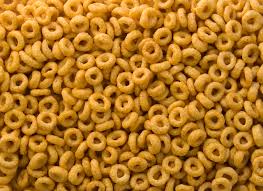
When Can Babies Eat Peanuts or Peanut Butter
When can my baby eat peanut butter? This is such a common question! This is probably because there is a lot of misinformation that is commonly spread around about allergens and starting babies on solids. However, although peanuts are a common allergy, the Mayo Clinic says that there have not been any studies that have shown that starting allergens early will lead to more allergies. In contrast, studies show that starting infants on peanuts or peanut butter early as can actually prevent peanut allergies. Because of this, infants can start eating peanuts that are cut up small and peanut butter that is not in big globs as early as 8 months.
When Can Babies Eat Eggs
Similarly, eggs are another common allergen that parents worry about giving their baby. However, just like peanuts, they are of no danger and are actually recommended early on–as early as 8 months.
When Can Babies Eat Fish
Fish are another allergen that parents may worry about. But they are fine to eat early on as long as they are cut up small. Infants can eat fish around 8 months of age.
When Can Babies Eat Raisins
Raisins and dried fruit are a great healthy option for little ones, but many parents don’t know when it is safe to start feeding them to their babies. According to Baby Center, babies can begin eating raisins and other dried fruits at around 9 months of age.
When Can Babies Eat Pineapple
When can my baby have pineapple? If you’ve ever asked this, you are not alone. Pineapple is a fruit that you don’t often see infants eating, however, it is perfectly safe to eat at 9-12 months, according to Healthline. However, since it is very fibrous, it can be a choking concern, so it should be cut up quite small.
View in gallery
When Can Babies Eat Tomatoes
Tomatoes are very acidic, so parents are often curious about how this might effect their little ones, and if they should feed them tomatoes at all. According to Momtastic, tomatoes are not recommended until about 10-12 months, since their acidity can be too much for littler babies.
When Can Babies Eat Chocolate
Infants can begin eating chocolate earlier, but many experts agree that the caffeine and sugar should be avoided frequently. Healthline recommends starting it after 12 months and in small doses.
When Can Babies Eat Ice Cream
Infants can begin having small amounts of dairy at 6 months, according to Parents, but since it is high in sugar, we would recommend waiting until 12 months and only giving it in small portions.
List of Liquids
When Can Babies Have Water?
Babies don’t need any water while they are exclusively breast or bottle fed. This can actually be damaging to them, as they rely heavily upon the nutrients that come from breast milk or formula. If they get full on water then they will lack the nutrients they need to thrive. Because of this, Stanford Children’s Health only recommends small sips of water once infants have started eating solids.
When Can Babies Have Juice?
When can my baby have apple juice? When can my baby have orange juice? These are common questions that parents have. The answer to this is yes and at around 6 months old, but not too much. Infants shouldn’t be getting that much juice because it is high in sugar, according to Stanford Children’s Health. But they do say that a little bit of fruit juice without sugar is okay at 6 months of age.
View in gallery
When Can Babies Have Cow’s Milk?
Infants should not be getting any cow’s milk until 12 months of age, according to Stanford Children’s Health. The milk they need before then is either breast milk or formula, as they include the precise nutrients that infants need.
When Can My Baby Have Pedialyte?
According to Pedialyte, infants under 12 months should not take Pedialyte unless given permission by a doctor. After that, parents should follow the recommended guidelines according to their child’s age.
What to avoid before 6 months
According to Stanford Children’s Health, parents should avoid feeding “homemade spinach, beets, green beans, squash, or carrots to babies younger than age 6 months.” They continue by saying that “these foods can have high amounts of nitrates. This raises the risk for a blood disorder (methemoglobinemia) that can interfere with oxygen delivery in the blood.”
What to avoid before age 1
According to Stanford Children’s Health, honey should be avoided before age 1 because it causes a type of botulism. In addition, Parents.com warns against feeding popcorn, nuts, whole grapes, or globs of peanut butter as these are choking hazards.
Some Things You Can Expect After Introducing Solids
There may be some changes to your baby’s stool after starting solids. According to Healthy Children, “When your baby starts eating solid foods, his stools will become more solid and variable in color. Because of the added sugars and fats, they will have a much stronger odor too. Peas and other green vegetables may turn the stool a deep-green color; beets may make it red. (Beets sometimes make urine red as well.) If your baby’s meals are not strained, his stools may contain undigested pieces of food, especially hulls of peas or corn, and the skin of tomatoes or other vegetables. All of this is normal. Your baby’s digestive system is still immature and needs time before it can fully process these new foods. If the stools are extremely loose, watery, or full of mucus, however, it may mean the digestive tract is irritated. In this case, reduce the number of solids and introduce them more slowly. If the stools continue to be loose, watery, or full of mucus, consult your child’s doctor to find the reason.”
In addition, there may be some changes to your baby’s sleep. According to BBC News, one study found that when babies started solids along with breast milk they slept longer and had fewer sleep problems. This is one major plus of starting your baby on solids!
Conclusion
Starting your baby on solids is an exciting time. New parents can look forward to more freedom and more sleep. However, don’t let these perks tempt you to rush the process. Research shows that its best to wait until 6 months to start complementary feeding. So take your time, enjoy the extra cuddles that come with breast/bottle feeding, and let the process happen naturally. Follow your baby’s cues and let them lead. If you pay close attention, you will notice when they are ready to start solids. And once they do, you can hopefully enjoy a bit more freedom and sleep.

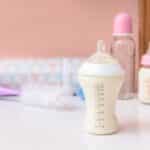
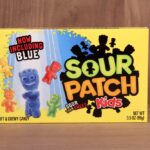
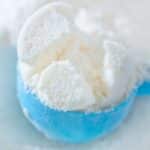
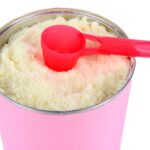


Packed with really great information for moms to consider and refer to. Thank you! I really liked the order and logical steps the info was presented in.